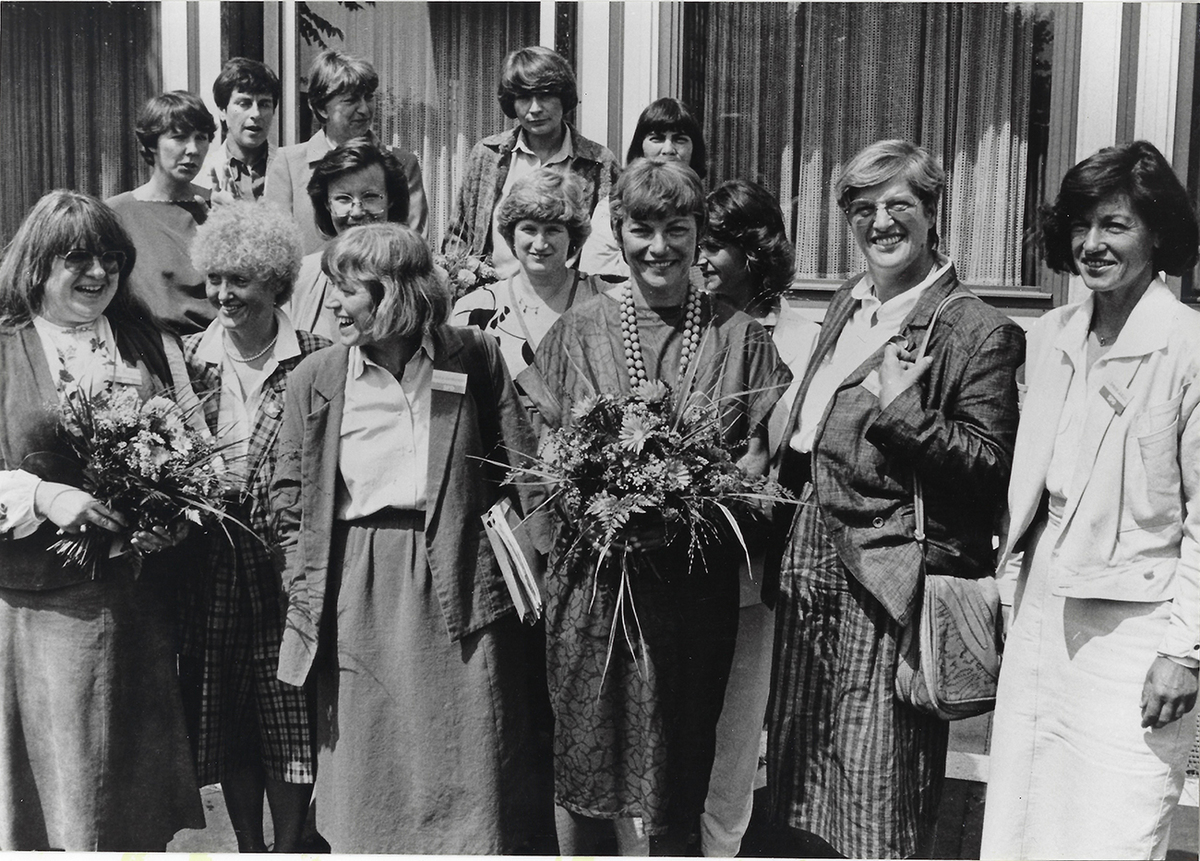Abstract
In March 1973, the first federal-level conference of the Working
Group of Social Democratic Women
[Arbeitsgemeinschaft sozialdemokratischer
Frauen or AsF] took place. When the Social Democratic Party (SPD)
went into the opposition in 1982, the AsF devoted more time to combating
discrimination against women within its own party. Whereas women made up
23% (1980) of the SPD membership, they accounted for only about 7-8% of
its federal party conference delegates and fewer than 10% of its
Bundestag representatives. Therefore, the AsF called for a quota system
to increase the proportion of women holding mandates and offices. On
August 30, 1988, the SPD federal party congress agreed on a quota system
that required 40% of all mandates and offices to be given to women.
Pictured here:
1st row from left: Karin Hempel-Soos (AsF Speaker), Katrin Fuchs
(MP), Inge Wettig-Danielmeier (AsF chairwoman), Anke Martiny (MP),
Eleonore Güllenstern (mayor of Mühlheim), Sabine Zech (mayor of Hamm.
2nd row from left: Heidemarie Wieczorek-Zeul (member of the EU
parliament), Anke Brunn (Minister for Science for the state of North
Rhine Westphalia), Eva-Maria Lemke (Senator for the Environment,
Bremen). Back row from left: Ingrid Stahmer (district mayor, Berlin),
Anke Fuchs (Deputy Chairperson, SPD parliamentary group), Marga
Wollschläger (labor union secretary), Heide Pfarr (Vice President,
Hamburg University), and Ingrid Matthäus-Maier (MP).
